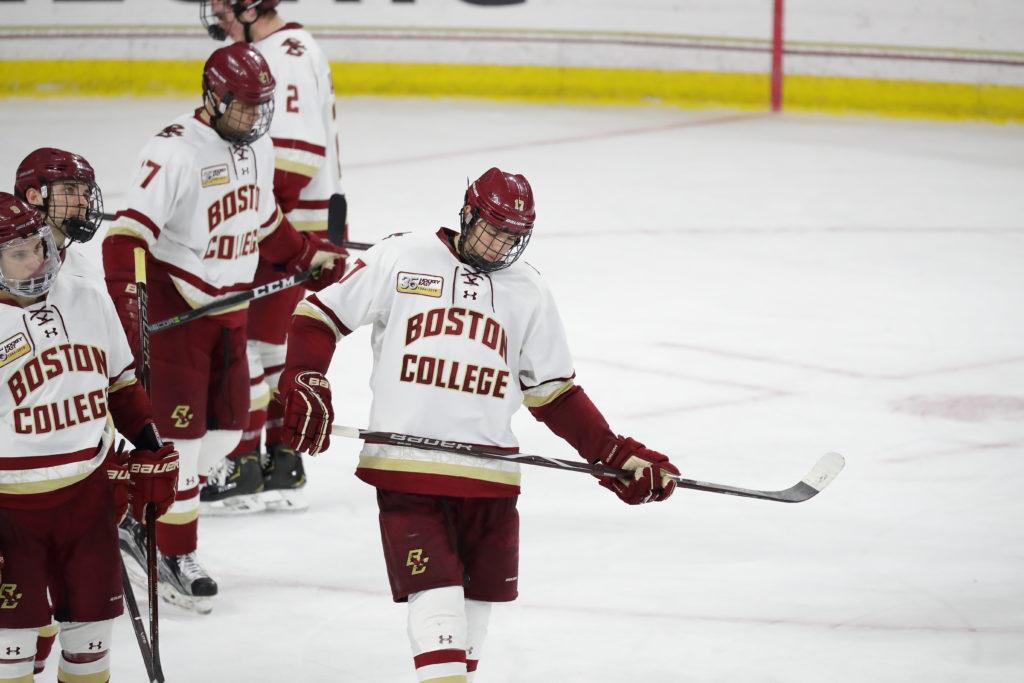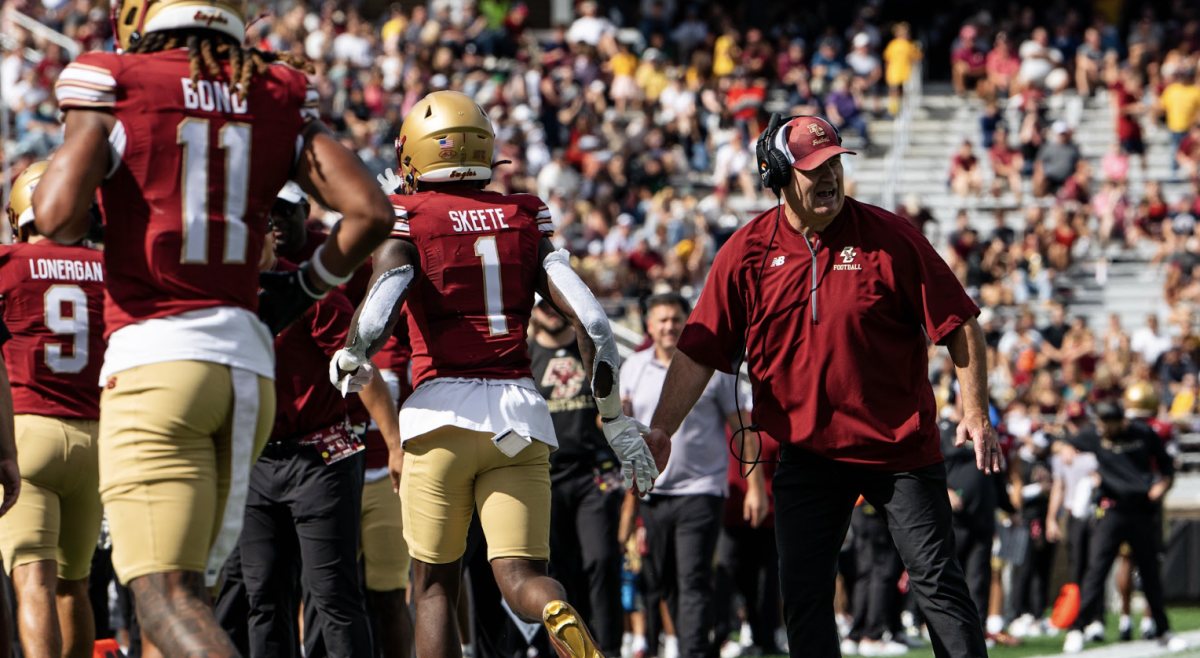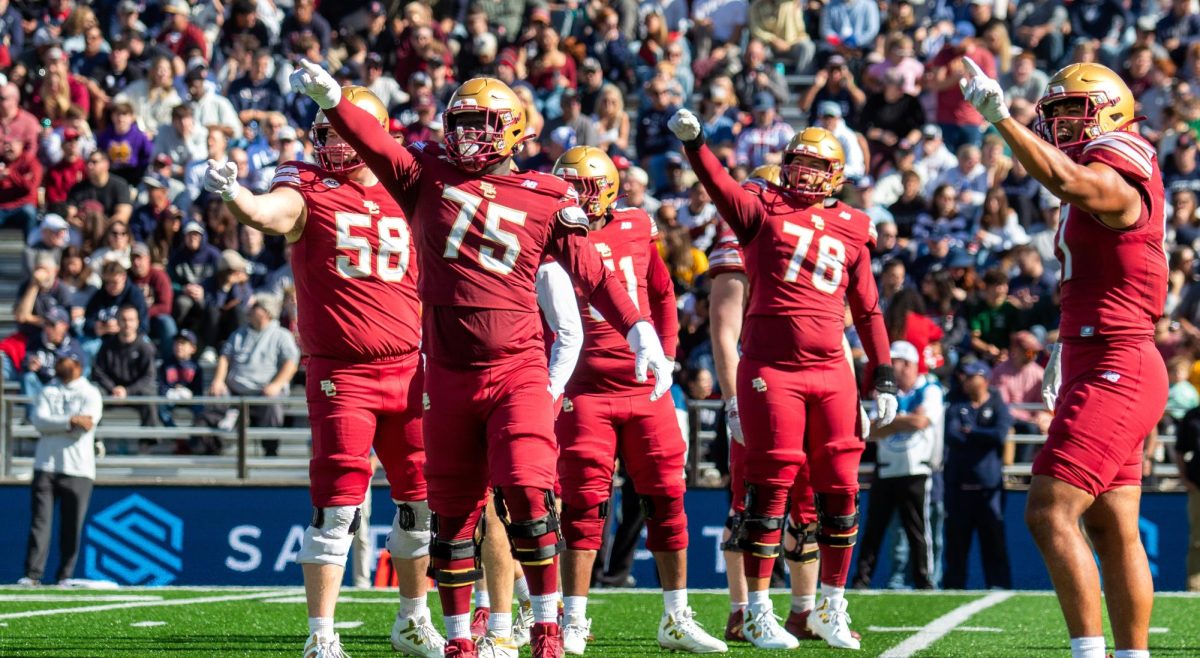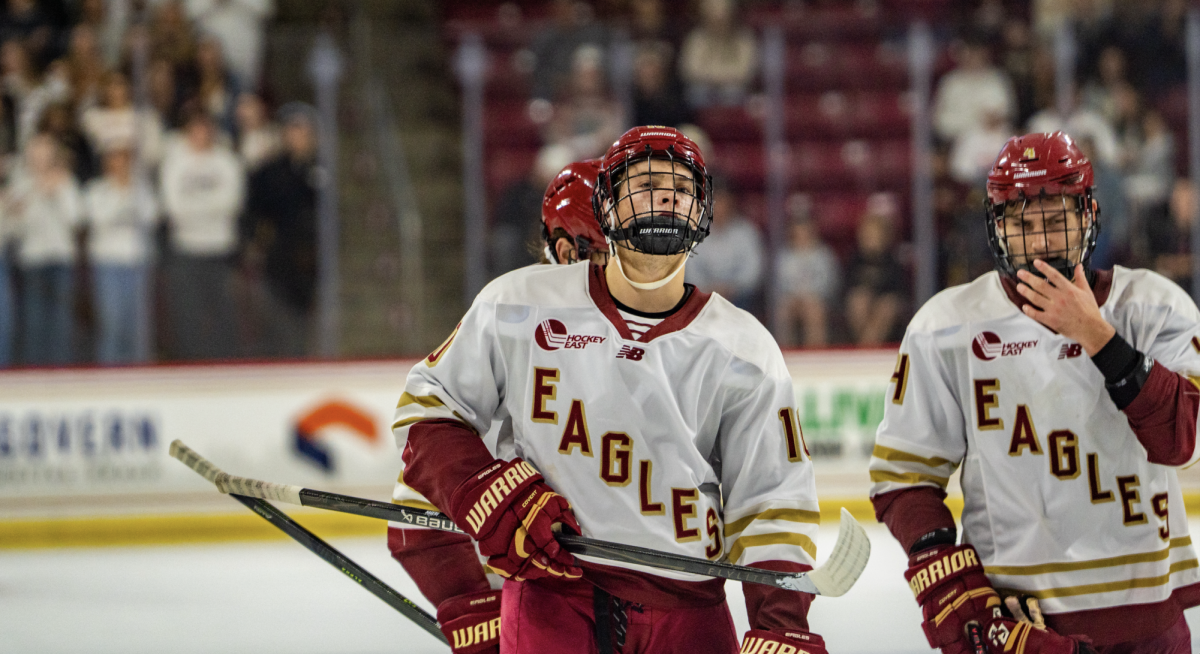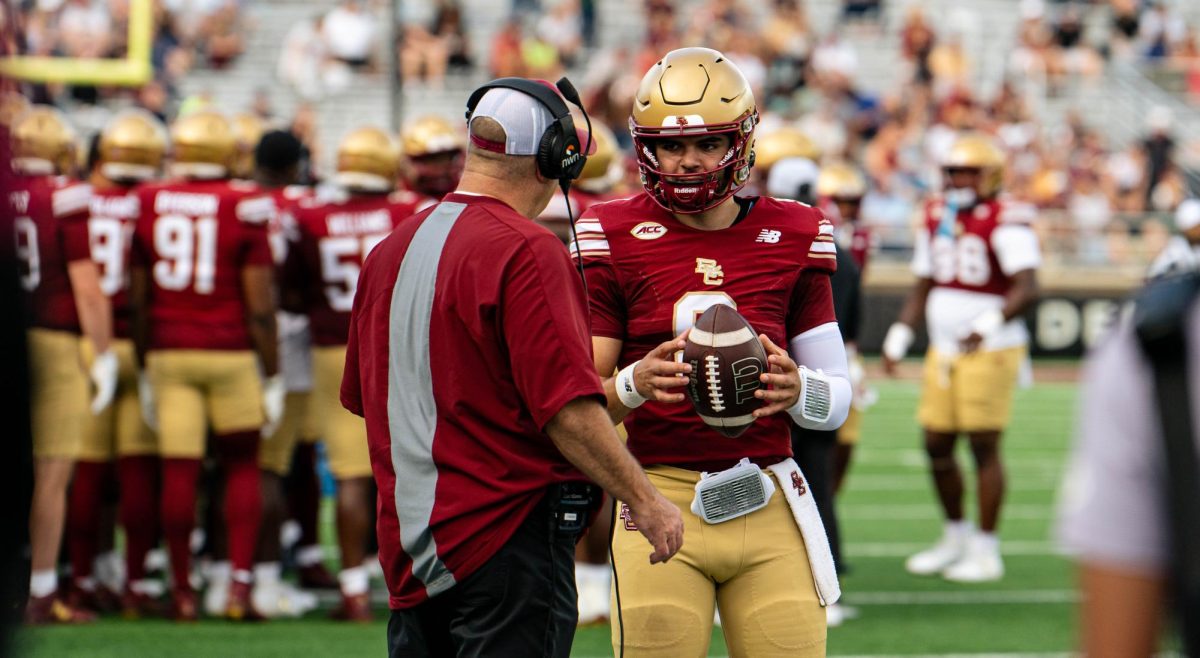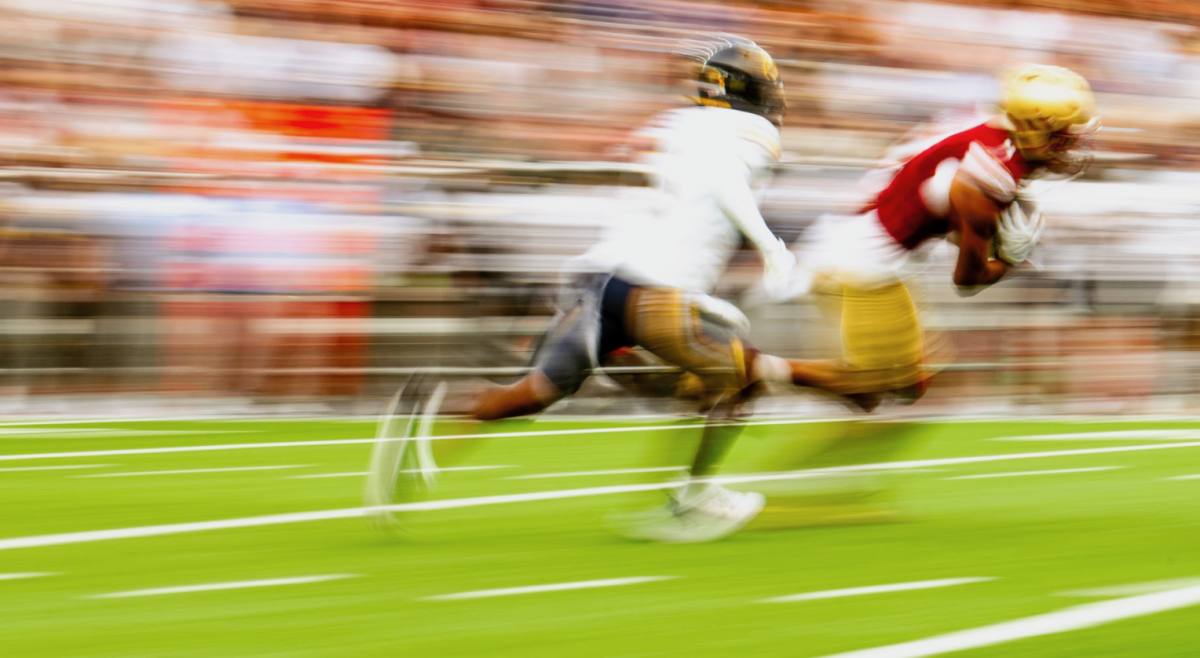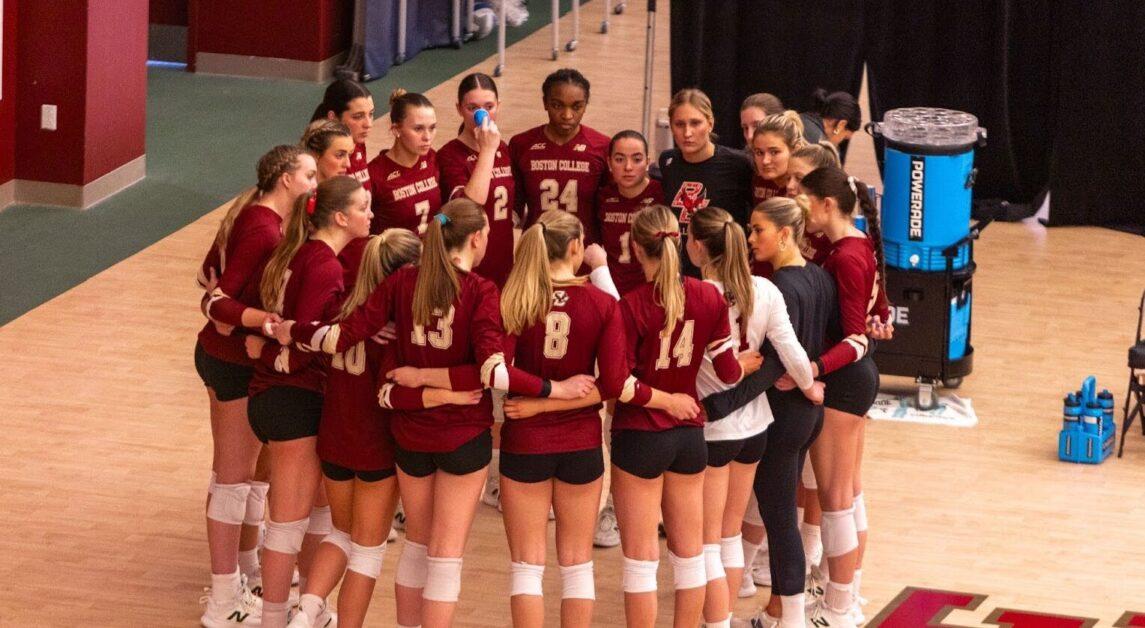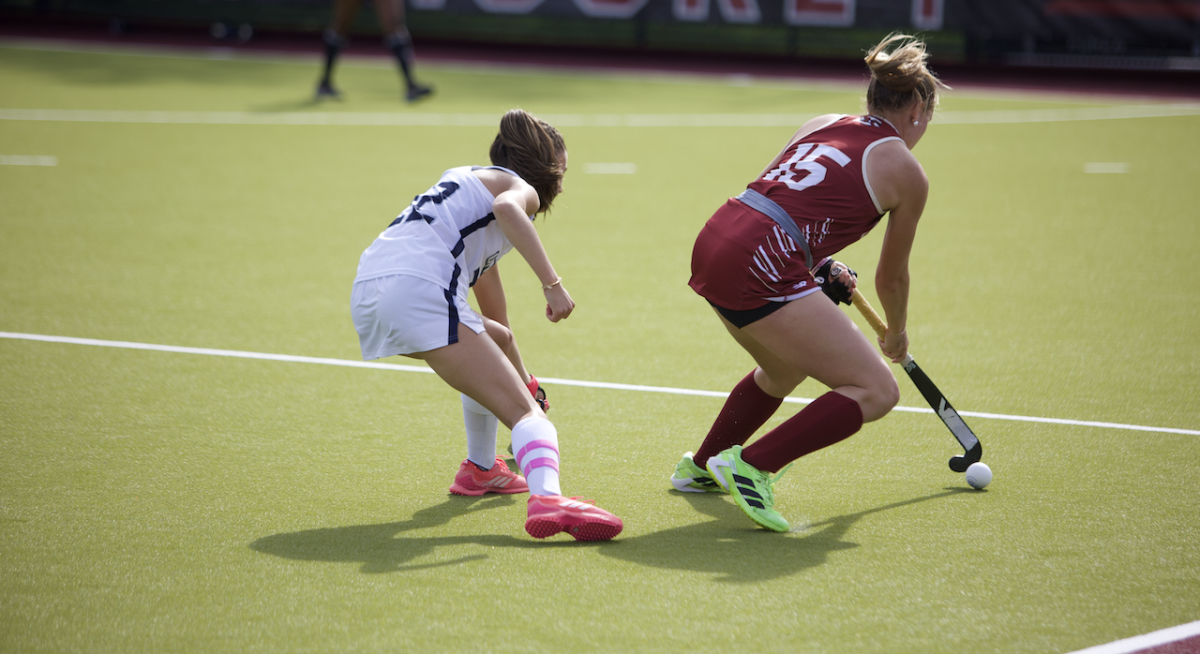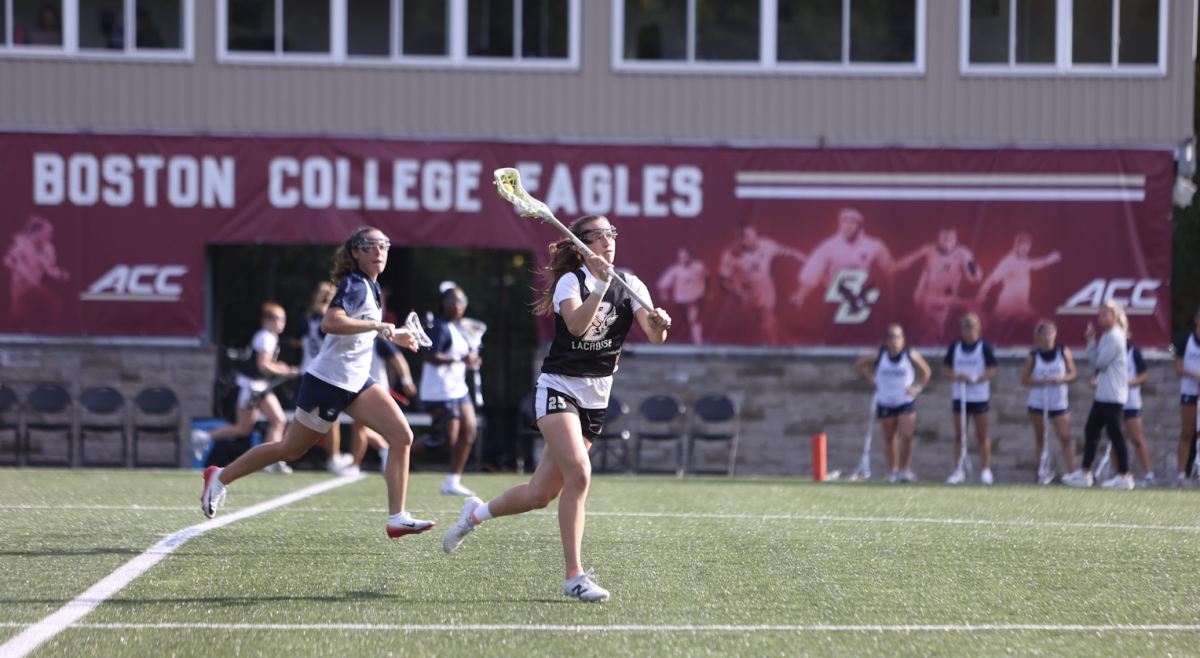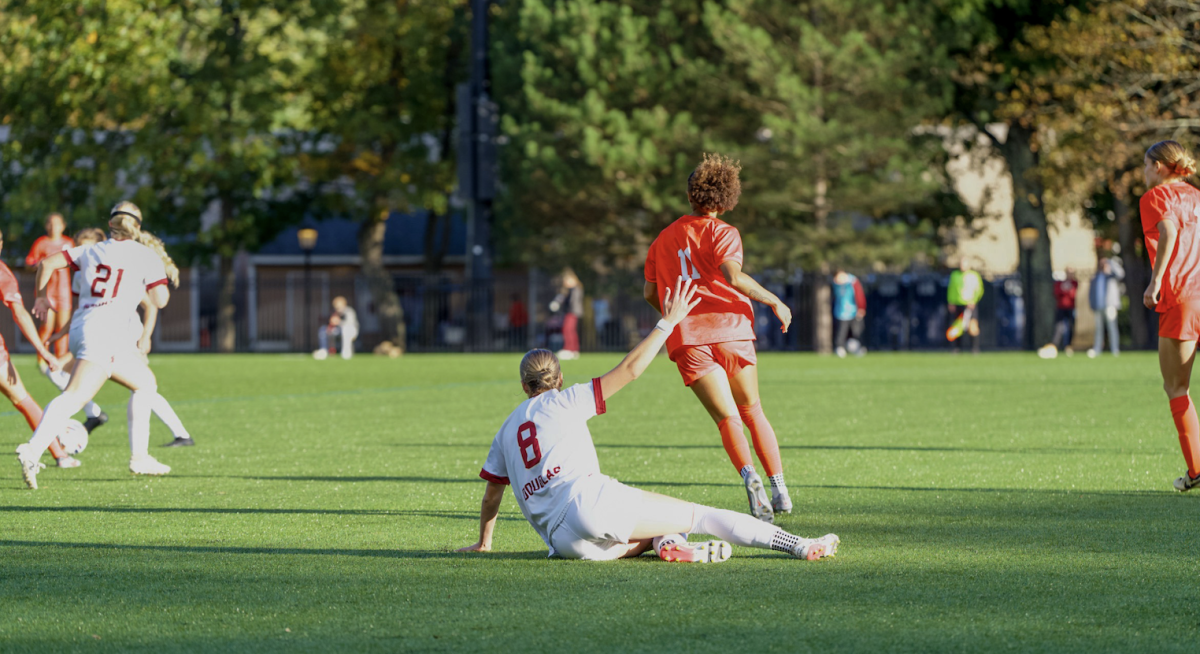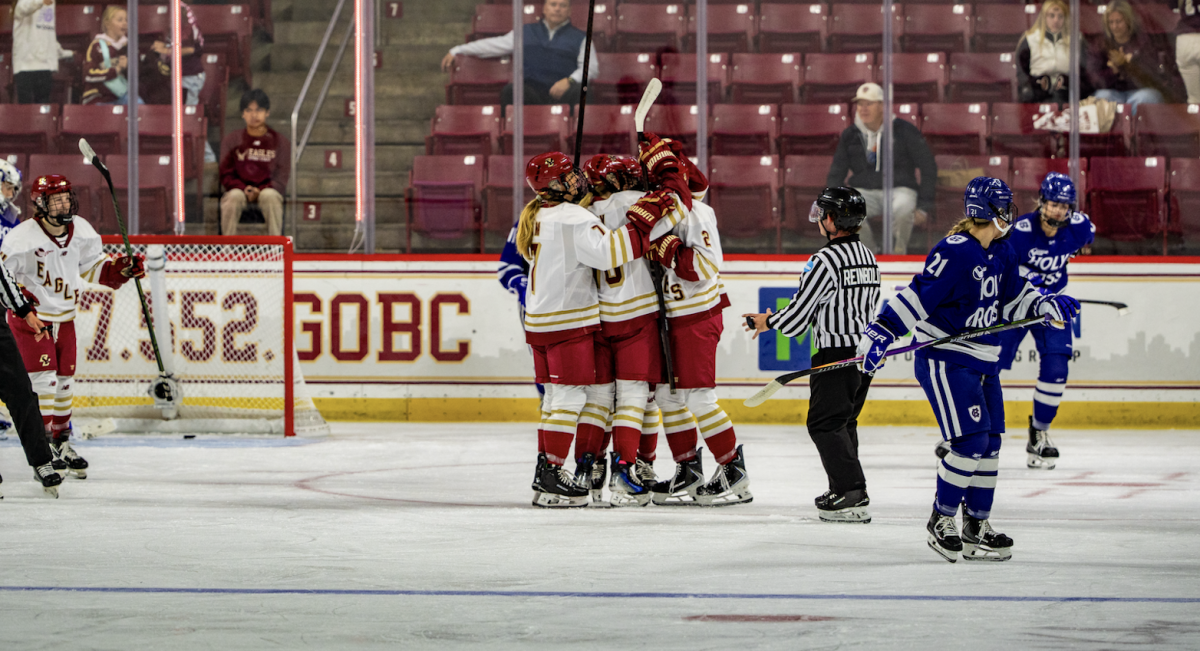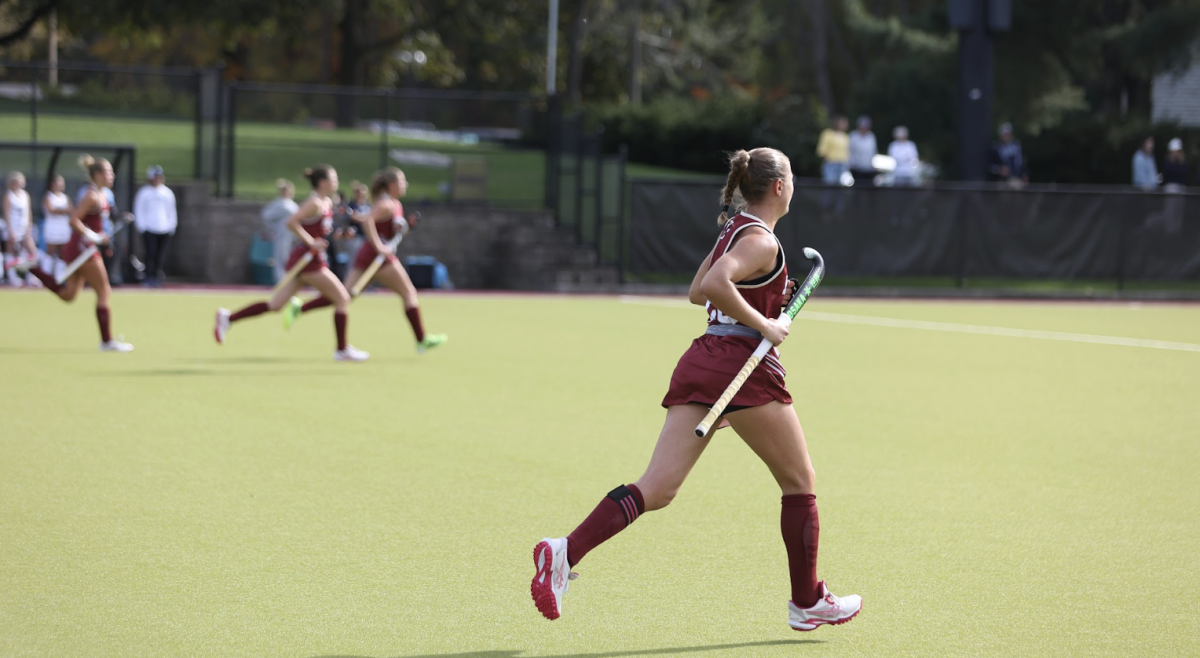When I arrived on campus as a freshman just over two years ago, Boston College men’s hockey was one of the best teams on campus. The Eagles had made the Frozen Four the season before, losing narrowly to Quinnipiac, and despite losing 11 players to graduation or the NHL, were once again expected to be a force to be reckoned with. They were ranked No. 5 in the preseason USCHO poll and No. 9 in the preseason USA Today Poll—and with nine players that had been drafted by NHL teams still on the roster, BC was expected to contend for not just the Hockey East regular season title, but another national championship.
For a while, it looked as if Jerry York and Co. might do just that. The Eagles were 10-2-1 to begin the season with wins over No. 3 Denver and No. 14 Providence, and reached as high as No. 3 in the polls going into a matchup with Harvard. But BC wound up losing that game, 5-2, in what was a sign of things to come. The Eagles struggled mightily down the stretch, finishing last in the Beanpot for the first time since 1993-94 and going winless in their last seven games. They also lost in the Hockey East Tournament championship to Massachusetts Lowell, a defeat that kept them out of the NCAA Tournament for the first time since 2008-09.
BC’s downward spiral has continued since then. The 2017-18 team lost five of its first six games and went winless in non-conference play, losing to national powerhouses Denver and St. Cloud State, but also to lesser opponents such as Michigan Tech. In the Beanpot, the Eagles slumped to a fourth-place finish for the second consecutive year for the first time since the 1973-74 and 1974-75 seasons, ignominiously losing in the first round to Northeastern before dropping the consolation to Harvard. Although the team did eventually win the Hockey East regular season title, it was something of a hollow victory.
BC failed to make the NCAA Tournament for the second straight year, losing in the conference semifinals in overtime to Boston University. And anyways, anyone who watched the Eagles throughout the year knew that the team wasn’t as good as BU, Providence, or Northeastern—the three Hockey East teams that ended up going to the NCAAs.
Despite reeling in one of the best recruiting classes in the country and returning its top-three leading scorers, BC looks even worse this season. The Eagles are a dismal 0-4, have been outscored 18-5, and still haven’t won a non-conference game since November 2016, a streak of 714 days. It’s safe to say this is a team entering a crisis. And if it can’t stop this recent trend, the spot that the hockey team has occupied in the campus consciousness is at risk.
No one is denying that the Eagles, historically, are one of the best college hockey programs in the country, and certainly BC’s most successful team. Men’s hockey remains the Eagles’ only major varsity sport to capture an NCAA championship. It’s that success that has earned the team such a prominent place on the Heights beside traditional major revenue sports teams such as football and men’s basketball. Since football was last in the ACC Championship in 2008, and men’s basketball last made the NCAA Tournament in the 2008-09 season, the men’s hockey team has appeared in the Frozen Four four times and won two national championships.
Ironically, that same success now works against the program. Because the team has historically been so good, expectations from fans and students are sky-high. So when the team starts 0-3, people lose interest quickly. That decline in interest was apparent in the home opener this season. Just 3,520 people came out to Thursday night’s game, a marquee matchup against St. Cloud State—the No. 2 team in the country. For some context, 5,263 people watched BC beat Colorado College in the 2016 home opener, and that Colorado College team was unranked. It doesn’t help that the Eagles lost, 7-0, to the Huskies, further illustrating how much the team has dropped off as of late.
Also not helping the hockey team is the emergence of other BC programs, such as football. In the past three years, the Eagles have been 4-4, 4-4, and 3-5 after eight games of play, fighting just to get back in the bowl discussion. This year? The Eagles are 6-2 after a win over Miami in the Red Bandanna Game with their sights set on something greater than just a bowl game. At this point, they’re a Virginia Tech road win and upset victory over Clemson away from a legitimate shot at the ACC Championship. Their rise has made the struggles of the men’s hockey team even more noticeable. With the football team playing better than it has in some time, hype has already pushed hockey fandom toward the backseat. Men’s hockey’s 0-4 start has only served to move them even farther out of headlines.
As another example, look at the men’s basketball team. Just two years after finishing winless in ACC play, the Eagles returned to the national scene in a big way in 2017-18, pulling off a huge upset of No. 1 Duke at home and winning two games in the ACC Tournament. In addition, Jerome Robinson became the first lottery pick in program history.
This season, the Eagles boast another potential lottery pick in Ky Bowman, the team’s first Top-100 recruit since Craig Smith in 2002 in Jairus Hamilton, and a solid supporting cast. Despite Robinson leaving for the NBA draft, excitement surrounding head coach Jim Christian’s team is ballooning.
If BC stays hot for the remainder of the football season and ends up being competitive in the ACC in basketball again while the men’s hockey team continues to lose, fans’ attention will undoubtedly continue to shift to those teams, leaving York’s Eagles out of the picture.
Now the obvious counterpoint is to question why people can’t follow both teams. And sure, there are certainly people who will continue to follow both teams closely. But for the casual sports fan, winter sports season often means picking and choosing which events to follow. After all, both hockey teams and basketball teams play multiple times a week during weekdays. That’s unlike football, which plays just once a week on weekends.
So BC sports fans will likely follow whichever sport is most talented, most successful, or both. In the past, the men’s hockey team ticked all the boxes, with NHL-ready talent like Chris Kreider, Johnny Gaudreau, and Alex Tuch lining the rosters and repeatedly leading the Eagles to the NCAA Tournament. Even though talent isn’t the problem for men’s hockey right now, the program is certainly starved for success. The team hasn’t won a tournament since the 2015 Beanpot. So until the hockey team returns to the level of fans’ expectations, spectators will look elsewhere to fill their weeknights.
That’s not to say that more fans for men’s basketball is a bad thing, or that this isn’t a fixable problem. It’s just surreal to see Kelley Rink, with national championship and Frozen Four banners hanging from the ceilings, with so many empty seats at the start of the season. Let’s be honest, if the Eagles start to cure their hockey woes, fans will come streaming back and packing the arena full once again. And the team has the right mix of talent and experience, not to mention one of, if not the, best college hockey coaches of all-time in Jerry York, to find long-term solutions and get back to looking like a Hockey East and national contender on a regular basis.
But for now, men’s hockey’s shortcomings are a concern to both the long-term health of the program and the team’s popularity and following on campus. Fixing the structural issues of the team and finding out why a team with so much top-level quality has underachieved to a shocking degree this season is a big and necessary undertaking. That said, if the process makes a difference in the win column, it won’t take long for fans to notice the results, for Kelley Rink to fill up once again, and for the men’s hockey team to once again be the pride of BC.
Featured Image by Jonathan Ye / For The Heights

